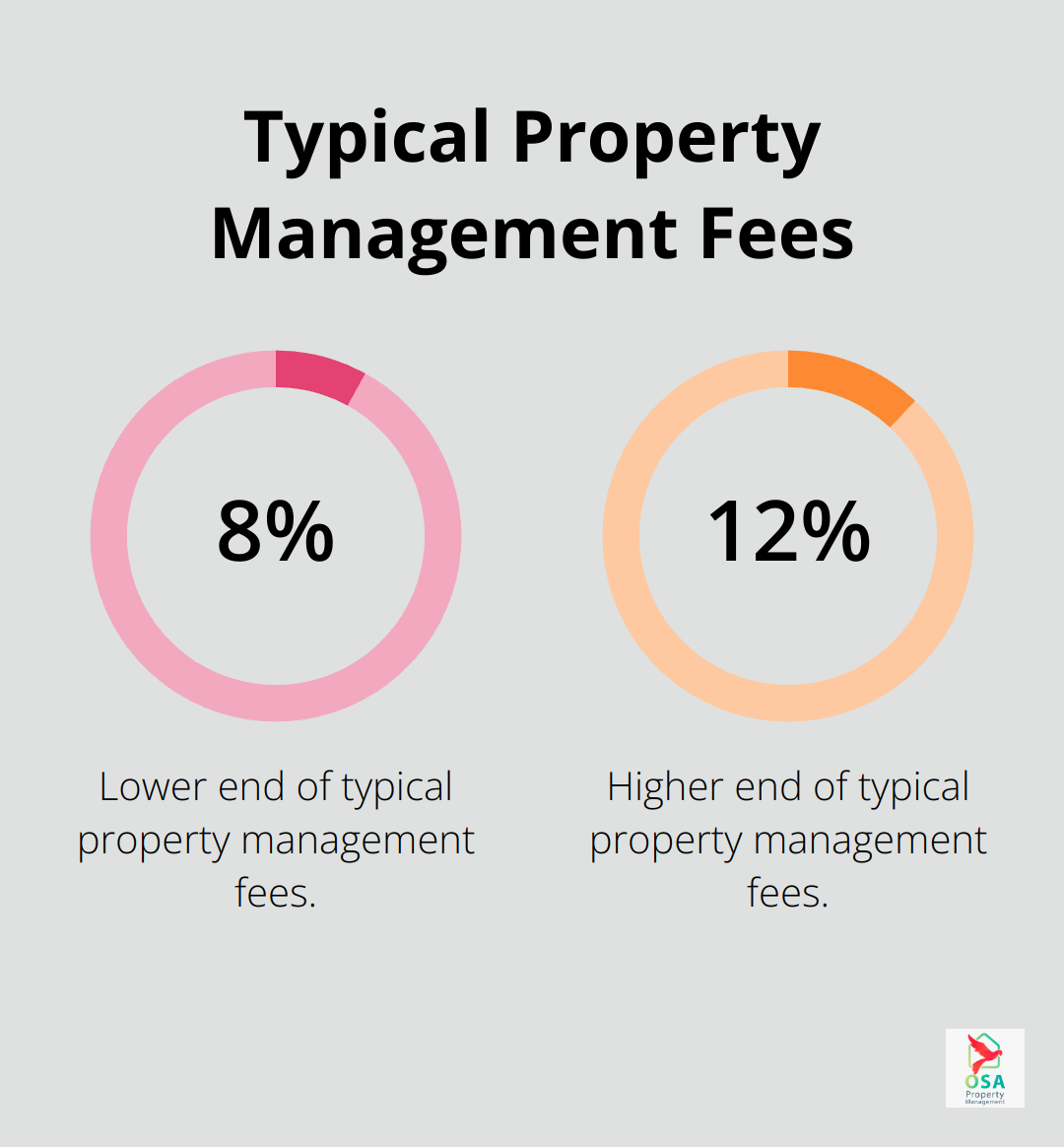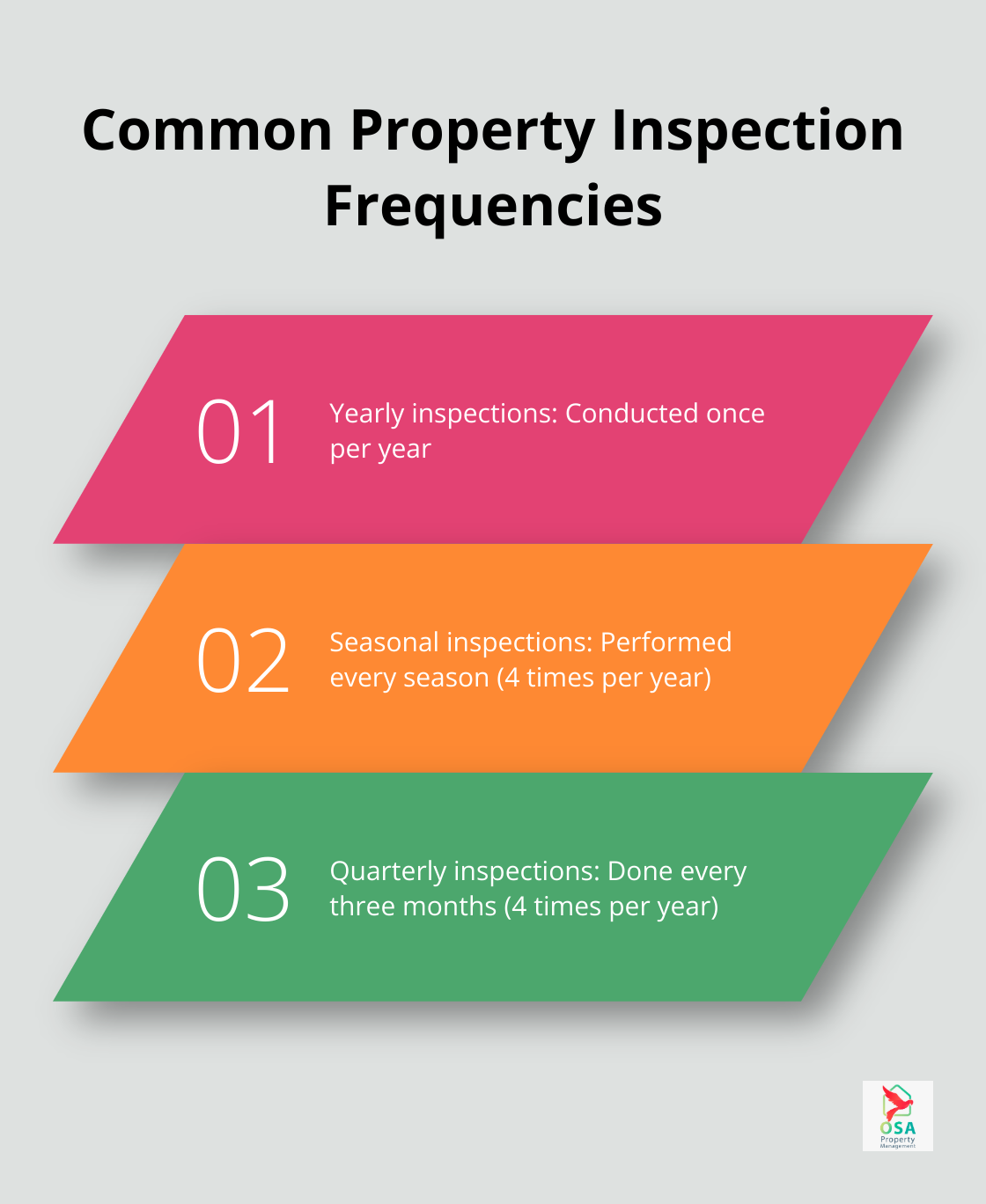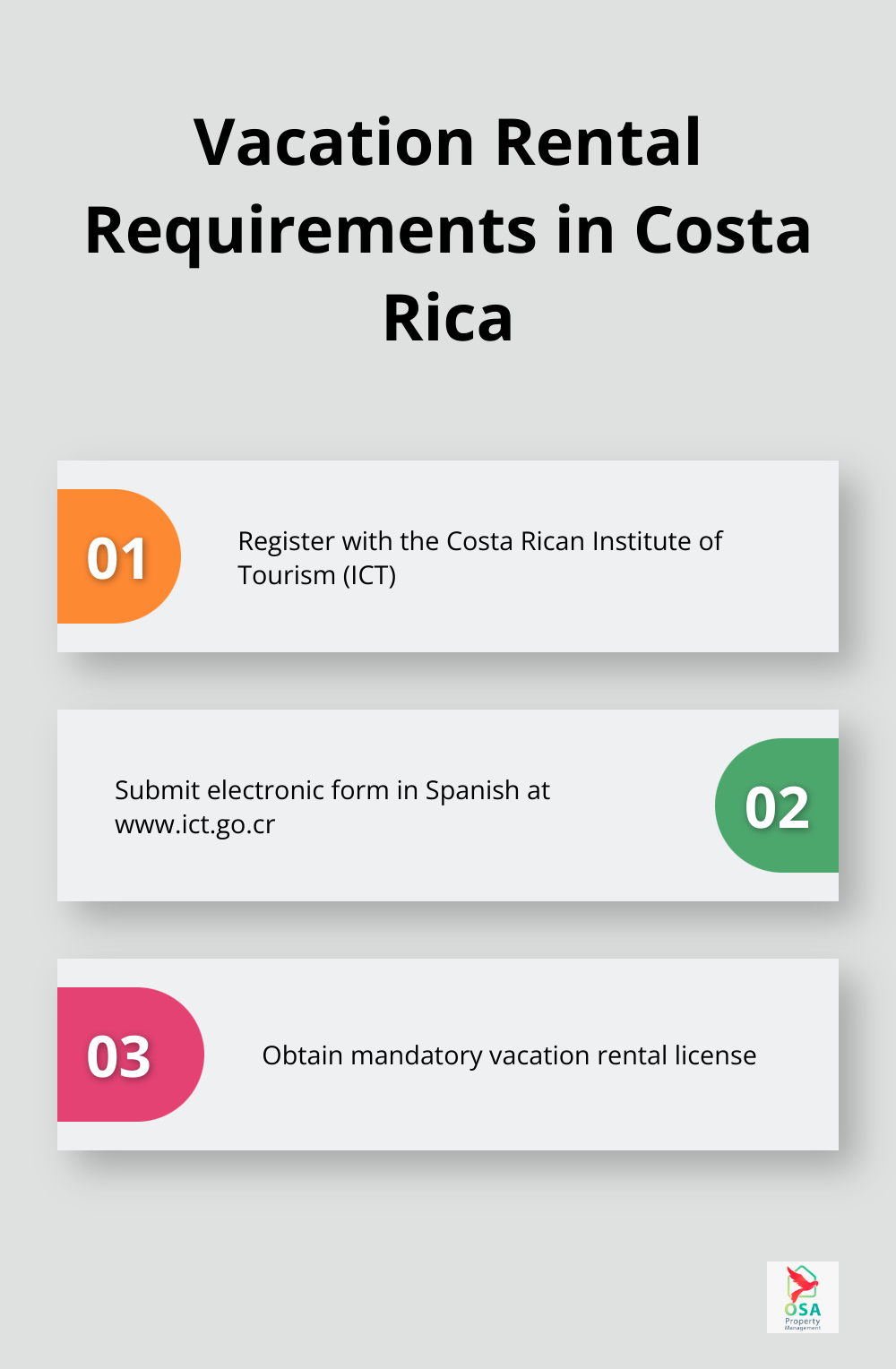At Osa Property Management, we understand the importance of a well-crafted property management agreement. This essential document sets the foundation for a successful partnership between property owners and managers.
A comprehensive agreement outlines responsibilities, expectations, and legal considerations, ensuring both parties are on the same page. In this post, we’ll guide you through the key components of a solid property management agreement and how to tailor it to different property types.
What Should a Property Management Agreement Include?
A solid property management agreement forms the foundation of a successful partnership between property owners and managers. At Osa Property Management, we’ve observed how a well-crafted agreement prevents misunderstandings and sets clear expectations for all parties involved.
Defining the Scope of Services
The first step in creating a robust agreement involves a clear outline of the services the property manager will provide. This typically includes tasks such as:
- Marketing the property
- Screening tenants
- Collecting rent
- Coordinating maintenance and repairs
Specificity about what’s included (and what’s not) is key. For example, the agreement should clarify whether the manager will handle landscaping or if that remains the owner’s responsibility. A clear scope of services helps avoid confusion and potential disputes in the future.
Establishing Fees and Payment Terms
Transparency in financial matters is essential. The agreement must clearly state the management fee structure, whether it’s a flat fee or a percentage of the rent collected. Recent industry data shows that management fees typically range from 8% to 12% of monthly rent. The agreement should also include details about additional fees for services like lease renewals or property inspections. It’s important to specify when and how payments will be made to the property owner.

Outlining Property Owner Responsibilities
While property managers take on many tasks, owners retain important responsibilities. These may include:
- Maintaining adequate insurance coverage
- Providing funds for major repairs
- Making decisions about significant property improvements
The agreement should clearly state what’s expected of the owner to ensure smooth operations and maintain the property’s value.
Defining Manager’s Authority and Limitations
Property managers need a certain level of autonomy to operate effectively. However, it’s important to set clear boundaries. The agreement should specify the financial limits for repairs or improvements that the manager can authorize without the owner’s approval. For instance, you might allow the manager to approve repairs up to a certain amount without consultation, but require owner approval for anything above that threshold. The agreement should also clarify the manager’s authority in legal matters, such as evictions or lease negotiations.
Customizing the Agreement
Every property and situation is unique. That’s why it’s important to tailor agreements to meet specific needs and circumstances. For example, agreements for properties in Costa Rica (where Osa Property Management operates) might include clauses about tropical weather precautions or local tax regulations.
A well-crafted property management agreement addresses these key components and sets the stage for a successful partnership. The next section will explore the legal considerations that should be incorporated into your agreement to ensure compliance and protect both parties’ interests.
Legal Safeguards in Property Management Agreements
Property management agreements must protect both owners and managers legally. At Osa Property Management, we prioritize legal compliance in all our agreements. This approach has helped us maintain smooth operations for over 19 years.
Compliance with Local and State Laws
Property management agreements must align with local and state regulations. In Costa Rica, laws regarding property management differ significantly from other countries. For example, all vacation rental properties must register with the Costa Rican Institute of Tourism (ICT). Non-compliance can result in hefty fines and legal complications.
We suggest consulting with a local attorney familiar with Costa Rican property laws when drafting your agreement. This step ensures that all clauses comply with current regulations and protect your interests effectively.
Insurance Requirements
A robust property management agreement should outline insurance requirements for both parties clearly. Typically, property owners must maintain adequate property insurance, while managers should carry professional liability insurance.
Many property owners overlook the importance of liability clauses (which protect both parties by clearly defining responsibilities in various scenarios). For instance, if a tenant suffers an injury due to a maintenance issue, a well-crafted liability clause can prevent costly legal battles by clearly stating who bears responsibility.
Termination Conditions
Every agreement should include clear termination conditions. This includes specifying notice periods, reasons for termination, and any associated fees. A 30-day notice period for termination often provides a fair balance for both parties.
Dispute Resolution
We strongly recommend including a dispute resolution clause. This clause should outline the steps to take if a disagreement arises, such as mediation or arbitration. Addressing potential conflicts proactively can save time, money, and stress in the long run.
While templates can provide a useful starting point, every property management situation is unique. Tailoring your agreement to your specific circumstances and having a legal professional review it will ensure that your agreement is not only legally compliant but also truly serves your individual needs as a property owner or manager.
The next section will explore how to customize your agreement for different property types, ensuring that your contract addresses the unique challenges and requirements of various real estate investments.
Tailoring Agreements for Diverse Property Types
Residential Properties
Residential property agreements should focus on tenant-related clauses. Include specific details about tenant screening processes, rent collection methods, and maintenance response times. You might specify that all maintenance requests will receive a response within 24 hours, with emergency issues handled immediately.
Add clauses about regular property inspections. These inspections are usually done yearly, seasonally, or quarterly. This routine inspection can serve to check everything at once and is a proactive approach that can result in significant savings for property owners in the long term.

Commercial Properties
Commercial property agreements require different considerations. They often involve longer lease terms and more complex maintenance responsibilities. Your agreement should clearly outline the responsibilities for various aspects of property upkeep (from HVAC systems to parking lot maintenance).
Include clauses about permitted use of the property. This helps prevent tenants from using the space in ways that could damage the property or violate local zoning laws. For a retail space, you might specify that the tenant cannot use the property for manufacturing purposes.
Vacation Rentals
Vacation rental agreements need to address the unique challenges of short-term stays. Include clauses about cleaning fees, check-in/check-out procedures, and occupancy limits. In Costa Rica, it’s important to include information about the mandatory vacation rental license required by the Costa Rican Institute of Tourism. This process requires owners to fill out an electronic form (in Spanish only) available at www.ict.go.cr.
Add a section about local laws and customs. In Costa Rica, specific regulations exist about noise levels and beach access that guests need to know. Including this information in your agreement can help prevent conflicts with neighbors and local authorities.

Multi-Unit Buildings
For multi-unit properties, your agreement should address common area maintenance and rules. Clearly define what constitutes a common area and who bears responsibility for its upkeep. Include details about how decisions regarding these shared spaces will be made.
Add clauses about unit access for maintenance and inspections. In multi-unit buildings, entering individual units to address building-wide issues is often necessary. Your agreement should outline the procedures for notifying tenants and gaining access in these situations.
Every property is unique. Consider the specific needs of each property you manage and tailor your agreements accordingly. This customized approach will help ensure smooth operations and satisfied property owners.
Final Thoughts
A well-crafted property management agreement forms the cornerstone of a successful partnership between property owners and managers. Clear communication and well-defined expectations in these agreements lead to smoother operations, fewer misunderstandings, and more satisfied clients. We recommend an annual review of your property management agreement to ensure it remains current and continues to serve your best interests.
Every property and situation requires a unique approach. Tailoring your agreement to address specific needs and challenges will yield the best results, whether you manage residential properties, commercial spaces, vacation rentals, or multi-unit buildings. A customized approach (based on local laws, market trends, and best practices) will protect your interests and maximize your investment potential.
At Osa Property Management, we create robust, tailored property management agreements for our clients in Costa Rica. Our expertise ensures that your agreement not only protects your interests but also sets the stage for a profitable, stress-free property management experience. A solid property management agreement serves as a roadmap for success in your property investment journey.

